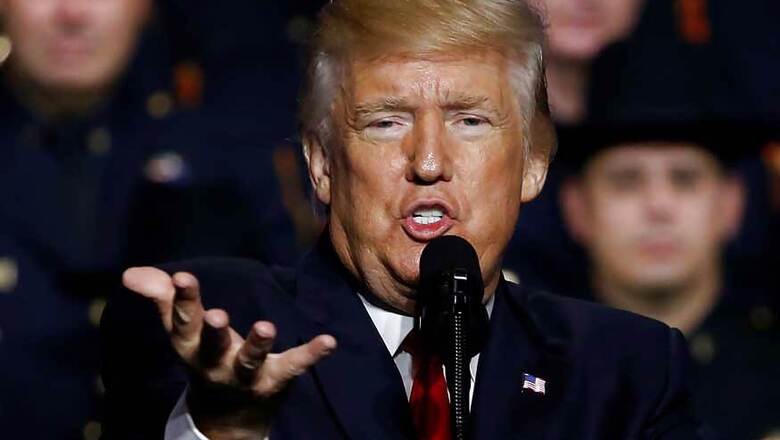
views
SEOUL/BEIJING (Reuters) - South Korean President Moon Jae-in and his US counterpart, Donald Trump, agreed to cooperate and apply maximum pressure on North Korea in a telephone call on Monday, as Chinese media warned of the limits of new UN sanctions.
The United Nations Security Council unanimously imposed new sanctions on North Korea on Saturday that could slash its $3 billion annual export revenue by a third.
The US-drafted resolution bans North Korean exports of coal, iron, iron ore, lead, lead ore and seafood following Pyongyang's two intercontinental ballistic missile tests in July.
It also prohibits countries from increasing the current numbers of North Korean labourers working abroad, bans new joint ventures with North Korea and any new investment in current joint ventures.
During the hour-long phone call, Moon and Trump said they would continue cooperating to rein in North Korea, particularly ahead of a regular joint military drill set for late in August, South Korean presidential office spokesman Park Su-hyun told a media briefing.
Moon was also cited as saying there was a need to show North Korea the door to dialogue is still open, should Pyongyang give up its nuclear programme.
In a separate statement, the White House said the two leaders "affirmed that North Korea poses a grave and growing direct threat to the United States, South Korea, and Japan, as well as to most countries around the world".
"The leaders committed to fully implement all relevant resolutions and to urge the international community to do so as well," the White House said.
In a Titter post, Trump said he was "very happy and impressed with 15-0 United Nations vote" on the sanctions.
MANILA MEETINGS
North Korea has accused the United States and South Korea of escalating tensions by conducting military drills. North and South Korea are technically still at war because their 1950-53 conflict ended in a truce, not a peace treaty.
The standoff has been in focus at a weekend regional security forum in Manila. The South Korea and North Korean foreign ministers ran into each other on Sunday evening at a waiting zone for a gala dinner, according to a South Korean foreign ministry official.
They had a brief exchange where South Korea's Kang Kyung-wha asked the North to swiftly respond to the South's proposals to improve ties with North Korea, the official said.
North Korea's foreign minister Ri Yong Ho momentarily paused then said Seoul's proposals lack sincerity when South Korea is imposing sanctions on the North with the United States, the official added.
Key to the new UN sanctions will be China, with which North Korea does the vast majority of its trade.
China has said it is committed to fully enforcing sanctions, but that sanctions are not a lasting solution.
In a front page commentary on Monday, the overseas edition of the ruling Communist Party's official People's Daily said North Korea's open flouting of UN rules with its missile launches meant that it had to be punished, but sanctions had to be targetted.
"Sanctions to the greatest possible extent must avoid causing negative impacts to ordinary people and to third countries, and avoid bringing disaster to the country in question's normal and legal trade and business exchanges with the outside world, people's normal lives and the humanitarian situation," it wrote.
"A precision blow is the essential part of sanctions."
China has also called for Washington and Seoul to help lower tensions by reining in their military activities and drills, and by withdrawing the Terminal High Altitude Area Defense (THAAD) anti-missile system.
The influential Global Times, published by the People's Daily, said it an editorial that the United States needed to curb its "moral arrogance over North Korea".
"The West should be reminded to exercise restraint. If it believes it is only North Korea rather than the US and South Korea as well to blame for the nuclear issue, this ill-fitting mindset will not help solve the crisis," the strongly nationalist publication said.
"The US should aim for peace and co-existence rather than geopolitical dominance."



















Comments
0 comment